
Évora - A Journey through Time in the Heart of Portugal
Évora, located in the Alentejo region of Portugal, is a true gem for history enthusiasts and culture seekers. This UNESCO World Heritage site is known for its well-preserved medieval architecture, ancient Roman ruins, and charming white-washed houses. The city's rich past is evident at every corner, making it a living museum that offers a unique glimpse into Portugal's storied history. Start your exploration at the Roman Temple, also known as the Temple of Diana, which stands as a testament to the city's ancient roots. Nearby, the Évora Cathedral, with its Gothic and Romanesque architecture, offers stunning views from its rooftop. Wander through the narrow cobblestone streets and you will find the Chapel of Bones, an eerie yet fascinating site adorned with human bones and skulls. Évora is not just about history; it is also a vibrant city with a lively cultural scene. The Praça do Giraldo, the city's main square, is a bustling hub filled with cafes, shops, and restaurants where you can savor local delicacies like Alentejo wine and traditional pastries. Don't miss the local markets where artisans sell handmade crafts, providing a perfect opportunity to take a piece of Évora back home with you. Surrounded by rolling plains and vineyards, Évora is also a great base for exploring the Alentejo countryside. Whether you're interested in wine tours, hiking, or simply enjoying the serene landscapes, Évora offers a perfect blend of history, culture, and natural beauty.
Local tips in Évora
- Visit the Roman Temple early in the morning to avoid crowds and get the best photos.
- Wear comfortable shoes as the city’s cobblestone streets can be uneven and tiring to walk on.
- Try the local Alentejo wine and traditional dishes at the Praça do Giraldo for an authentic culinary experience.
- The Chapel of Bones may be unsettling for some, so prepare yourself before visiting.
- Check out the local markets for unique handmade crafts and souvenirs.
- Take a day trip to the surrounding Alentejo countryside for wine tours and hiking.
Évora - A Journey through Time in the Heart of Portugal
Évora, located in the Alentejo region of Portugal, is a true gem for history enthusiasts and culture seekers. This UNESCO World Heritage site is known for its well-preserved medieval architecture, ancient Roman ruins, and charming white-washed houses. The city's rich past is evident at every corner, making it a living museum that offers a unique glimpse into Portugal's storied history. Start your exploration at the Roman Temple, also known as the Temple of Diana, which stands as a testament to the city's ancient roots. Nearby, the Évora Cathedral, with its Gothic and Romanesque architecture, offers stunning views from its rooftop. Wander through the narrow cobblestone streets and you will find the Chapel of Bones, an eerie yet fascinating site adorned with human bones and skulls. Évora is not just about history; it is also a vibrant city with a lively cultural scene. The Praça do Giraldo, the city's main square, is a bustling hub filled with cafes, shops, and restaurants where you can savor local delicacies like Alentejo wine and traditional pastries. Don't miss the local markets where artisans sell handmade crafts, providing a perfect opportunity to take a piece of Évora back home with you. Surrounded by rolling plains and vineyards, Évora is also a great base for exploring the Alentejo countryside. Whether you're interested in wine tours, hiking, or simply enjoying the serene landscapes, Évora offers a perfect blend of history, culture, and natural beauty.
When is the best time to go to Évora?
Iconic landmarks you can’t miss
Templo Romano Évora
Explore the Templo Romano Évora, a stunning Roman temple that showcases the rich history and architectural beauty of Portugal's cultural heritage.
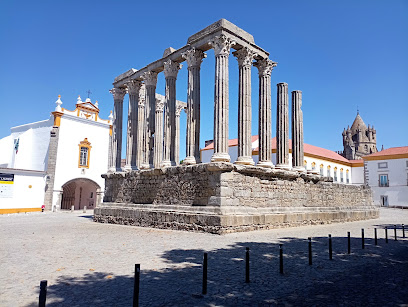
Chapel of Bones (Évora)
Discover the haunting beauty of the Chapel of Bones in Évora, where history, art, and spirituality intertwine to create a unique tourist experience.
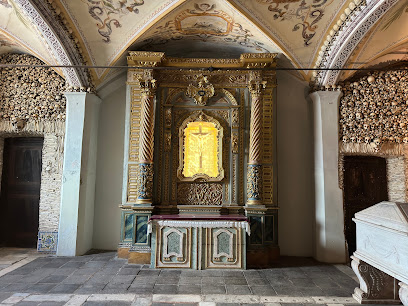
Cathedral of Évora
Discover the stunning Gothic architecture and rich history of the Cathedral of Évora, a UNESCO World Heritage site in the heart of Portugal.
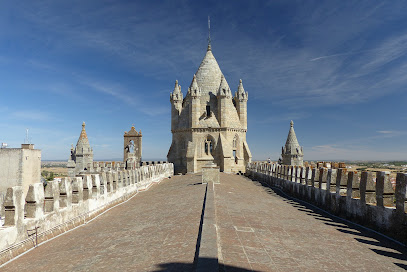
Igreja e Mosteiro de São Francisco
Explore the breathtaking Igreja e Mosteiro de São Francisco in Évora, a historical gem showcasing stunning Gothic architecture and profound spirituality.
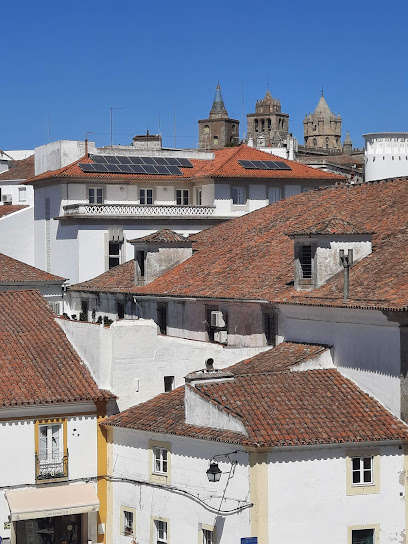
Giraldo Square Fountain
Explore the Giraldo Square Fountain in Évora, a historical gem surrounded by vibrant cafes and rich Portuguese culture.
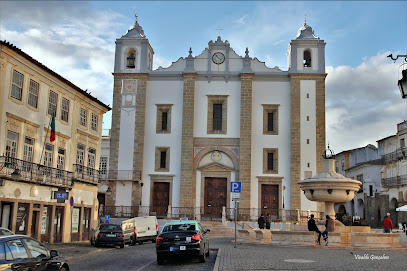
Aqueduct
Discover the Aqueduct of Évora, a monumental historical landmark that reflects the architectural genius of the 16th century and offers breathtaking views.
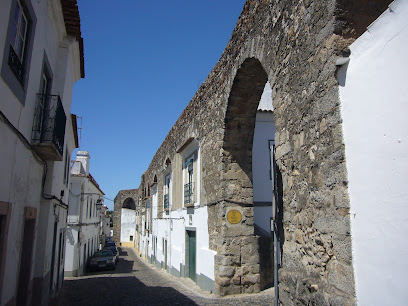
Taberna Típica Quarta-feira
Discover the authentic flavors of Portugal at Taberna Típica Quarta-feira in Évora, where traditional dishes and a warm ambiance await.
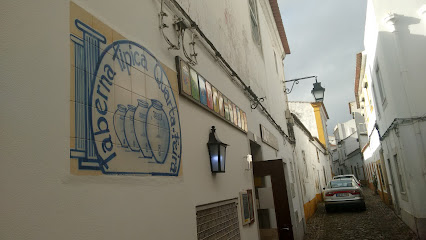
Convento do Espinheiro, Historic Hotel & Spa - Évora
Experience the perfect blend of luxury and history at Convento do Espinheiro, Évora's premier historic hotel and spa.
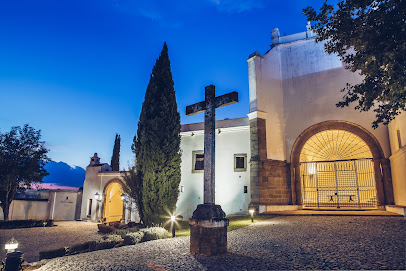
Alto de São Bento
Experience the breathtaking views and serene atmosphere at Alto de São Bento in Évora, a scenic spot perfect for nature lovers and photographers alike.
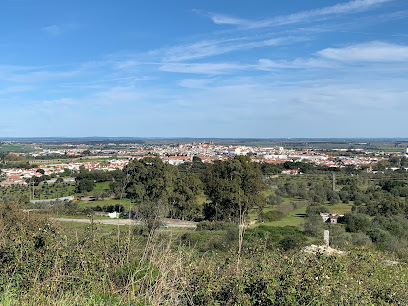
Mercado Municipal 1º de Maio - Évora
Discover the vibrant Mercado Municipal 1º de Maio in Évora, a cultural gem showcasing local produce, crafts, and authentic Portuguese flavors.
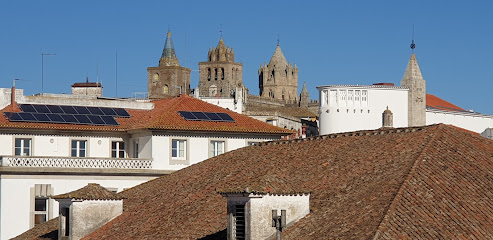
Ruínas Fingidas
Explore the ancient wonders of Ruínas Fingidas in Évora, a captivating historical landmark perfect for history enthusiasts and nature lovers alike.
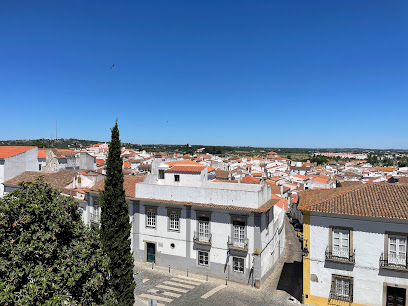
Monument to the Dead of the Great War
Explore the Monument to the Dead of the Great War in Évora, a serene tribute to history that invites reflection and remembrance in a beautiful setting.
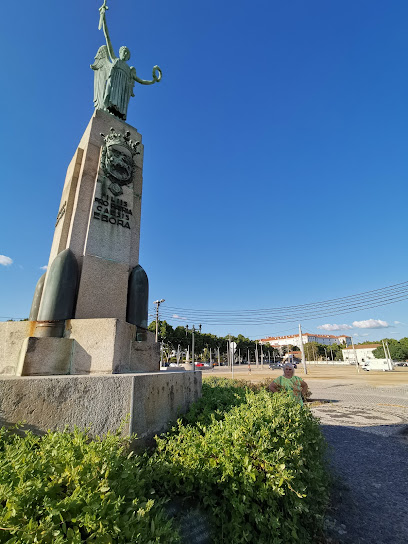
Royal Palace of Évora
Explore the Royal Palace of Évora, a historical landmark showcasing stunning architecture and rich cultural heritage in Portugal's enchanting city.
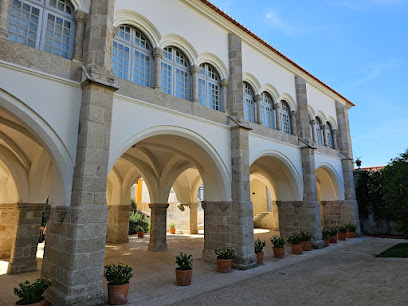
Porta Velha da Lagoa
Discover the enchanting Porta Velha da Lagoa in Évora, a historical castle that highlights the rich heritage and architectural splendor of Portugal.
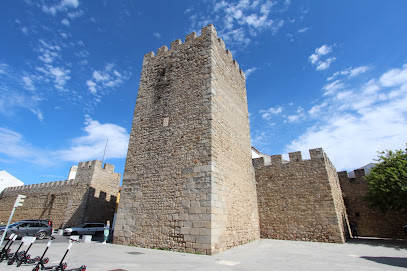
Graça Church
Explore the stunning Graça Church in Évora, a captivating blend of history, architecture, and serene ambiance in the heart of Portugal.
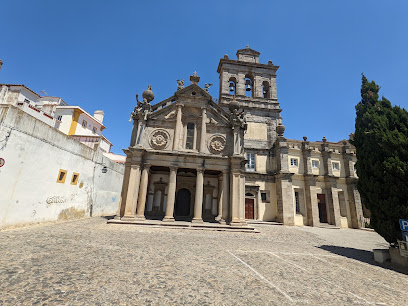
Unmissable attractions to see
Roman Temple of Évora
Discover the Roman Temple of Évora, an architectural marvel and a UNESCO World Heritage site, steeped in history and cultural significance.

Monsaraz Castle
Explore the historic Monsaraz Castle in Évora, Portugal, a stunning medieval fortress offering breathtaking views and rich cultural experiences.
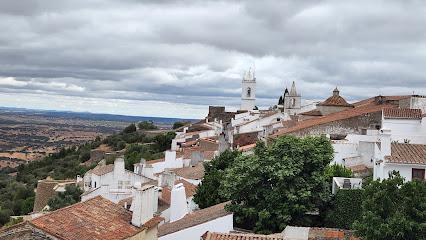
Chapel of Bones (Évora)
Explore the haunting beauty of the Chapel of Bones in Évora, where history and the macabre intertwine in a unique cultural experience.

Centro Histórico de Évora
Immerse yourself in the rich history and vibrant culture of Évora's Centro Histórico, a UNESCO World Heritage site showcasing stunning architecture and local delights.
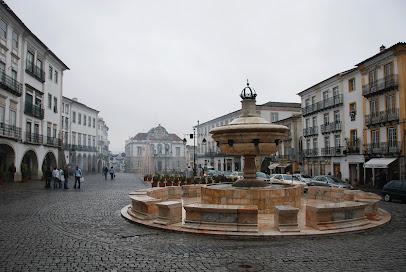
Pousada Castelo Estremoz
Experience the allure of history and luxury at Pousada Castelo Estremoz, a medieval castle hotel in the heart of Alentejo, Portugal.
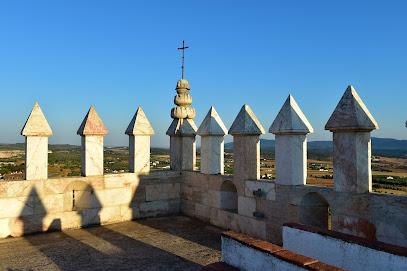
Ducal Palace of Vila Viçosa
Discover the rich history and stunning architecture of the Ducal Palace of Vila Viçosa, an essential stop for history enthusiasts and culture seekers.
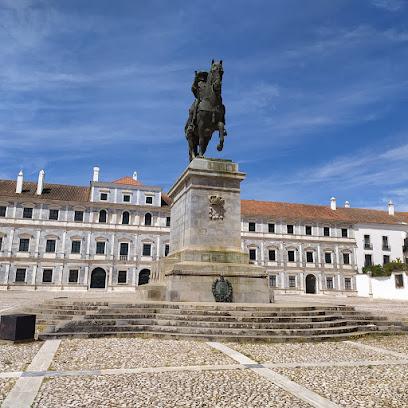
Almendres Cromlech
Explore the ancient megalithic site of Almendres Cromlech in Nossa Sra. de Guadalupe, a captivating journey through history and culture in Portugal.

Igreja e Mosteiro de São Francisco
Explore the stunning Igreja e Mosteiro de São Francisco in Évora, a UNESCO World Heritage site rich in history, art, and architectural beauty.
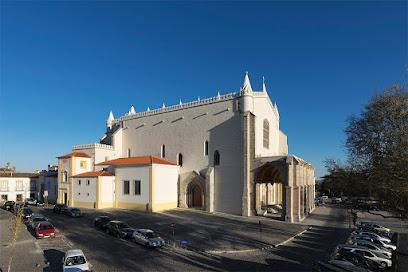
Cathedral of Évora
Explore the Cathedral of Évora, a stunning Gothic masterpiece and UNESCO World Heritage site, reflecting Portugal's rich history and architectural beauty.

Giraldo Square Fountain
Explore the historic charm of Évora at Giraldo Square Fountain, a cultural gem surrounded by lively cafes and stunning architecture.
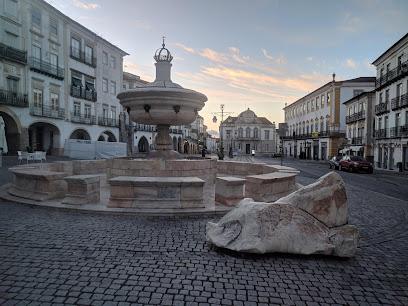
Castelo de Montemor-o-Novo
Explore the historic Castelo de Montemor-o-Novo, a medieval gem offering stunning views and a glimpse into Portugal's fascinating past.
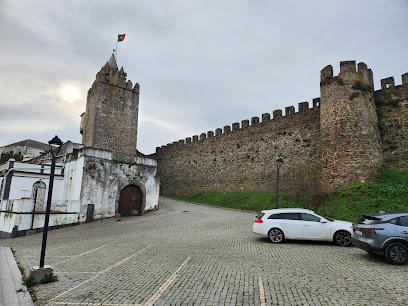
Castle of Evoramonte
Explore the historic Castle of Evoramonte in Portugal, an architectural gem offering stunning views and rich medieval history.
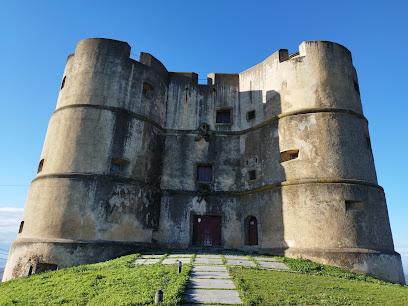
Jardim Público de Évora
Explore the serene beauty and historical charm of Jardim Público de Évora, a must-visit park in the heart of Évora, Portugal.
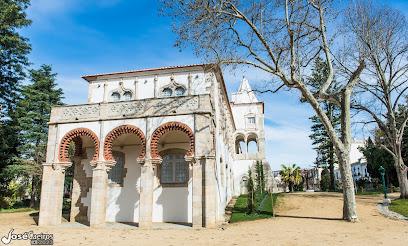
Castle of Arraiolos
Discover the enchanting Castle of Arraiolos, a historical gem offering stunning views and a glimpse into Portugal's rich heritage.
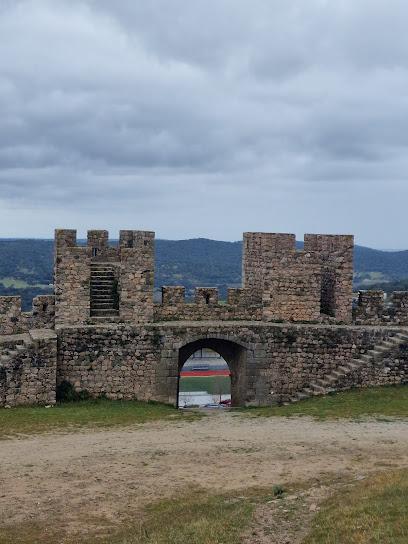
Aqueduct
Explore the Aqueduct of Évora, a stunning 16th-century engineering marvel and a key historical landmark in Portugal's rich cultural heritage.
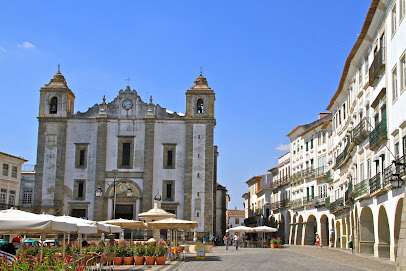
Essential places to dine
A Gruta
Discover A Gruta in Évora – where succulent steaks meet warm hospitality in a charming setting.
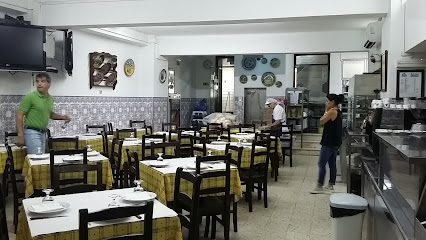
Restaurante O Moinho do Cu Torto
Savor authentic Portuguese cuisine at Restaurante O Moinho do Cu Torto in Évora—where tradition meets flavor in every bite.
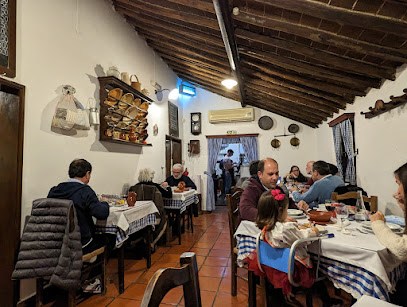
Taberna Típica Quarta-feira
Discover the authentic taste of Alentejo at Taberna Típica Quarta-feira in Évora, where traditional flavors meet warm hospitality.
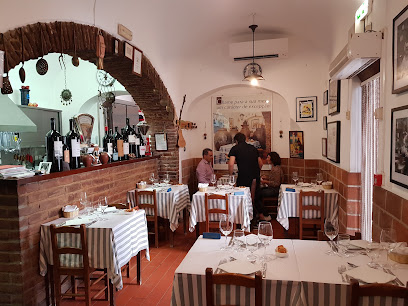
Páteo
Experience authentic Portuguese cuisine at Páteo in Évora - where tradition meets flavor in every dish.
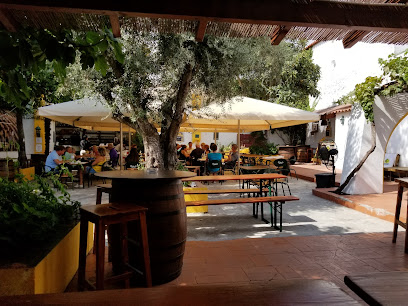
Fialho
Discover Fialho: A Culinary Haven in Évora Offering Authentic Alentejo Flavors and Unforgettable Dining Experiences.
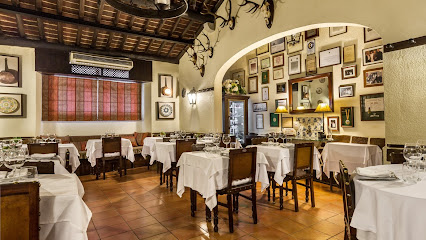
Dom Joaquim
Experience authentic Portuguese cuisine at Dom Joaquim in Évora - where tradition meets flavor in every dish.
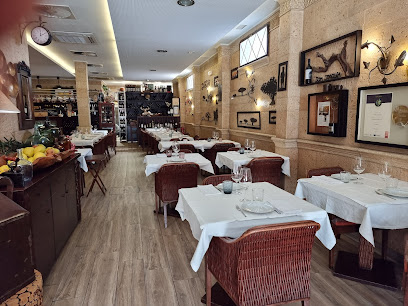
Café Alentejo
Discover authentic Portuguese flavors at Café Alentejo in Évora – where tradition meets culinary excellence.
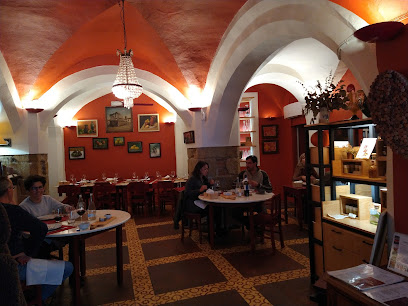
Vinho e Noz
Experience authentic Portuguese cuisine at Vinho e Noz in Évora, where tradition meets modern culinary excellence.
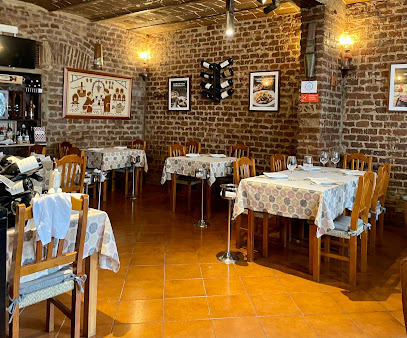
O Templo
Experience authentic Portuguese cuisine at O Templo in Évora—where tradition meets flavor in an inviting atmosphere.
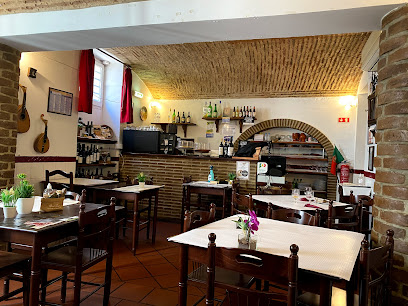
Enoteca Cartuxa
Experience exquisite Portuguese cuisine and fine wines at Enoteca Cartuxa in Évora - a culinary haven for travelers.
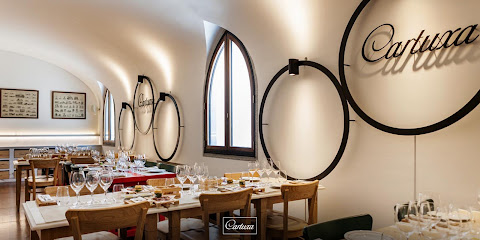
Tábua do Naldo
Experience the authentic flavors of Portugal at Tábua do Naldo in Évora - where every meal is a celebration of tradition.
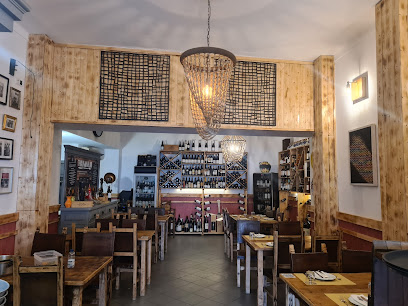
A Choupana
Discover A Choupana in Évora for authentic Portuguese cuisine featuring fresh local ingredients in a charming atmosphere.
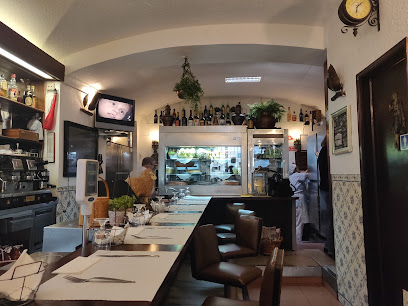
Alkimia Madeirense
Experience authentic Portuguese cuisine at Alkimia Madeirense in Évora—where tradition meets modern flair in every dish.
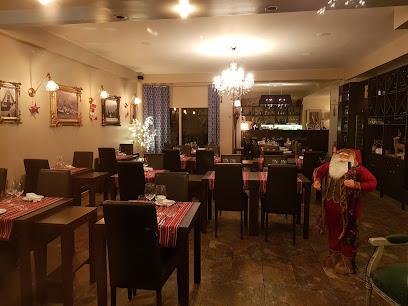
O Combinado
Experience authentic Portuguese cuisine at O Combinado in Évora – where tradition meets flavor in every dish.
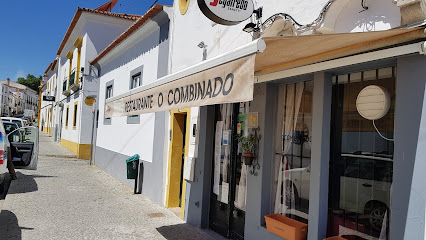
Restaurante Guião
Experience authentic Portuguese cuisine at Restaurante Guião in Évora, where every dish tells a story of tradition and flavor.
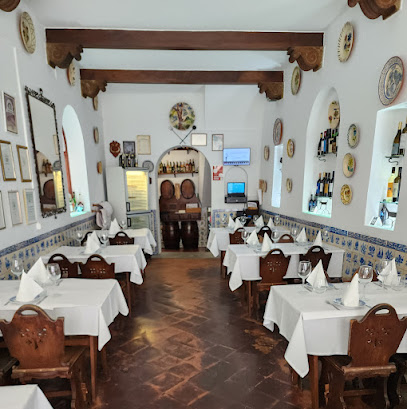
Markets, malls and hidden boutiques
Évora Plaza
Discover Évora Plaza, a vibrant shopping mall in Évora, Portugal, blending international brands with local charm and delicious dining options.
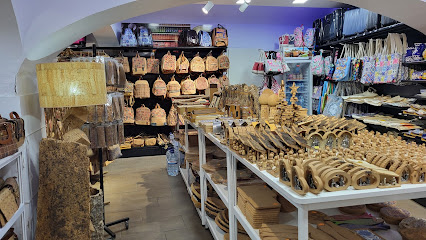
Évora Home
Explore Évora Home, a charming variety store offering unique local crafts and souvenirs in the heart of historic Évora, Portugal.
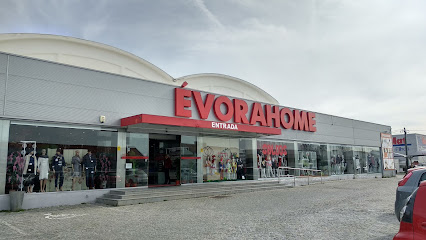
Pull and Bear
Explore trendy fashion at Pull and Bear in Évora, offering stylish clothing for men and women in a vibrant shopping atmosphere.
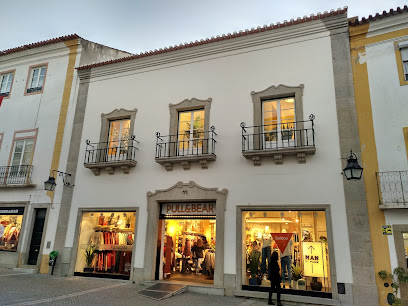
ALE-HOP Évora
Explore ALE-HOP Évora for unique gifts and vibrant local crafts that capture the playful spirit of this historic city.
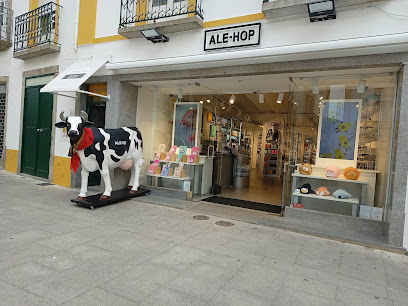
Ervideira Wine Shop
Discover the exquisite flavors of Alentejo at Ervideira Wine Shop, Évora's premier destination for local wines and tastings.
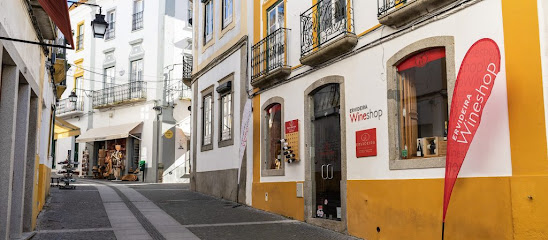
Loja Mr. Blue Évora Plaza
Discover stylish men's fashion at Loja Mr. Blue Évora Plaza, your go-to destination for beachwear, work clothes, and accessories in Évora.
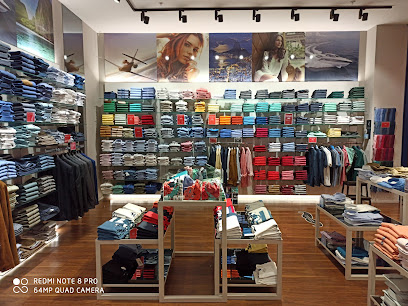
Livraria Nazareth - Livraria, Papelaria e Presentes
Explore the enchanting Livraria Nazareth in Évora for a unique selection of books, stationery, and gifts that embody local culture.
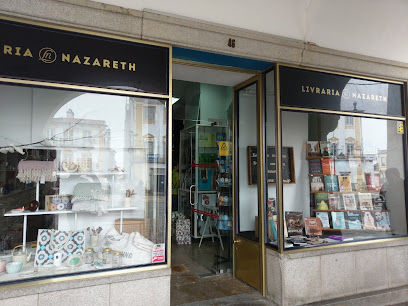
MANGO
Explore MANGO in Évora for stylish women's clothing that blends contemporary design with affordability, perfect for every occasion.
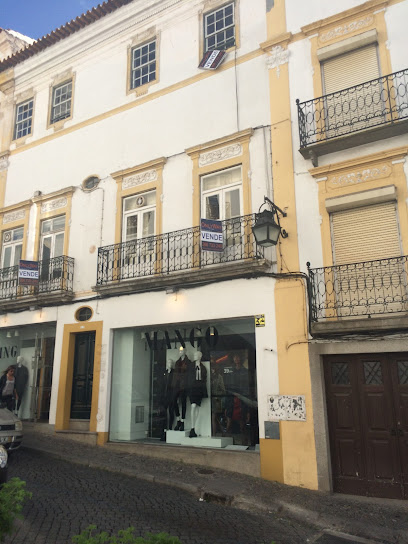
Boutique do Vinho
Discover Boutique do Vinho in Évora for an authentic taste of Portuguese wines and a charming shopping experience in a historic setting.
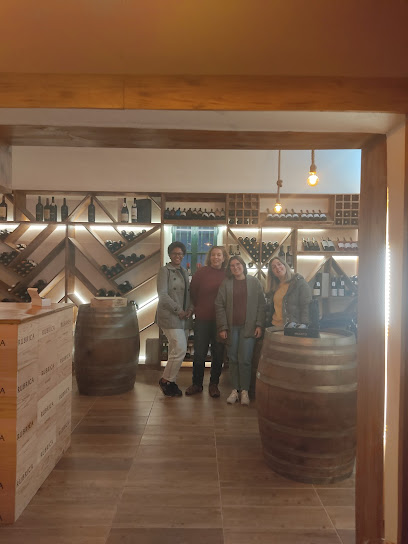
Equivalenza Évora
Explore a fragrant paradise at Equivalenza Évora, where tradition meets modernity in a stunning perfume store.

Gente da Minha Terra
Explore Gente da Minha Terra in Évora for unique handmade gifts that embody the spirit of Portuguese craftsmanship and culture.
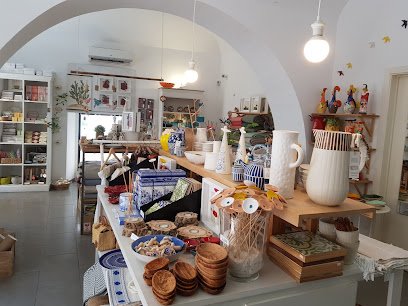
B de Brincar - Brinquedos e jogos que criam memórias
Explore B de Brincar in Évora, a toy store offering unique toys, board games, and comics for all ages, sparking joy and creativity.
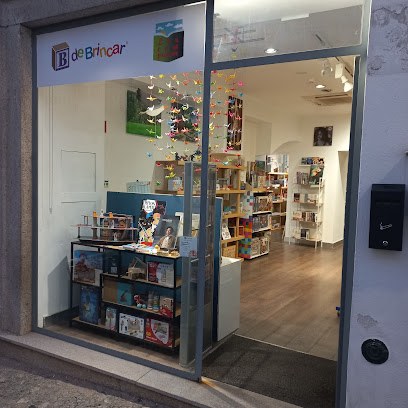
100mlStore Evora
Explore the exquisite world of beauty at 100mlStore in Évora, where quality cosmetics meet historic charm.
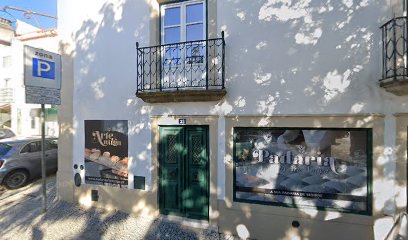
Loja Chinesa Os Amigos - Wu Xiaoxiao
Discover the charm of Évora at Loja Chinesa Os Amigos - Wu Xiaoxiao, where cultural treasures and local crafts await your exploration.
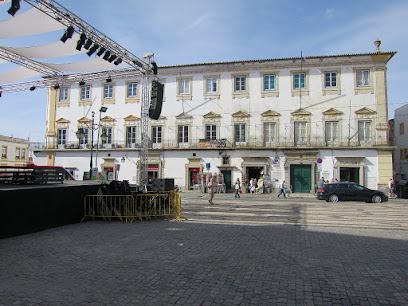
YEBORATH ® Design & Gift Shop
Explore YEBORATH® Design & Gift Shop in Évora for unique custom t-shirts and local gifts that capture the essence of your travels.
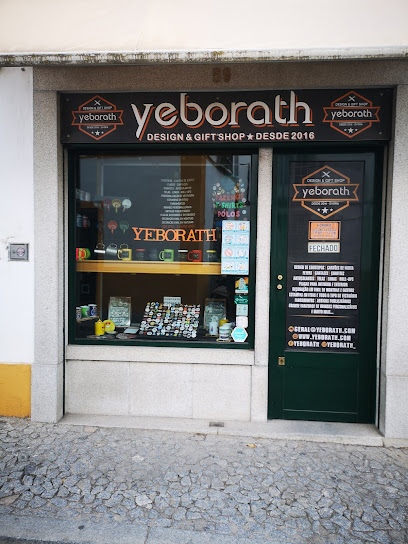
Essential bars & hidden hideouts
Piparoza boutique bar
Discover the charm of Évora at Piparoza Boutique Bar, where local flavors meet a contemporary dining experience surrounded by vibrant culture.
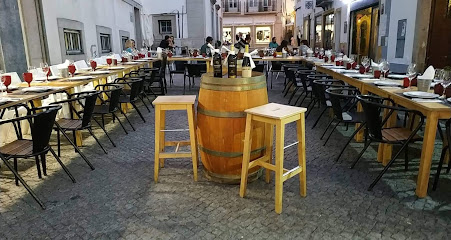
Pub Molhóbico
Discover the lively ambiance and eclectic menu at Pub Molhóbico in Évora, where local culture meets modern dining.
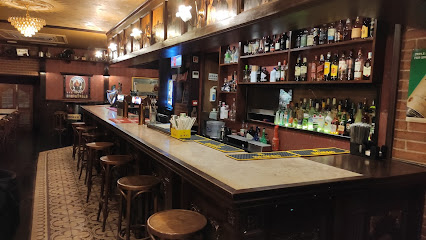
Bar O Tunnel
Discover the vibrant atmosphere and delicious cuisine at Bar O Tunnel in Évora, a must-visit for every traveler in Portugal.
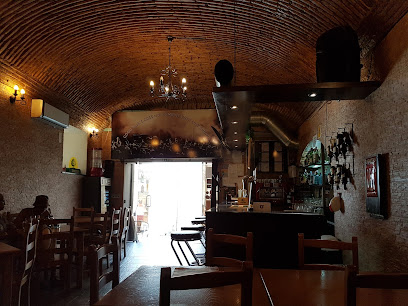
Clube/Bar 6 Tetos
Discover the lively atmosphere and great drinks at Clube/Bar 6 Tetos, Évora's go-to spot for nightlife and pool fun.
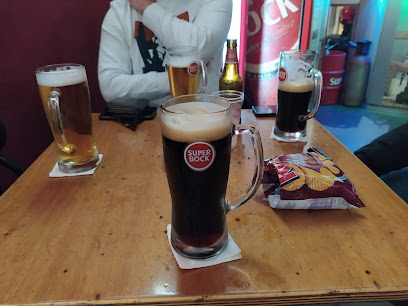
Bar Culpa Tua
Experience the vibrant nightlife of Évora at Bar Culpa Tua, where local charm meets eclectic vibes in the heart of the city.
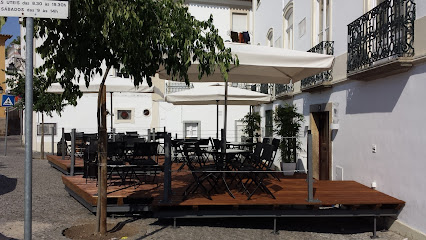
BarUe
Experience the vibrant nightlife of Évora at BarUe, a lively bar with a welcoming atmosphere and a great selection of drinks.
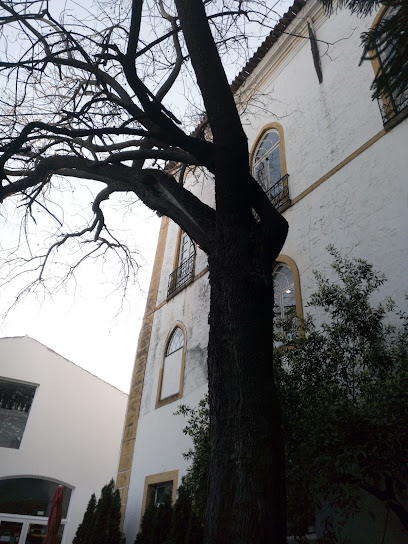
Cafe Estrela d'Ouro
Discover the vibrant atmosphere and local charm of Cafe Estrela d'Ouro, Évora's top bar for unforgettable drinks and delightful company.
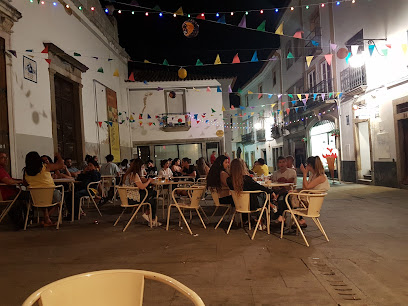
Feito ao Bife
Discover the rich flavors of Portugal at Feito ao Bife, a charming bar and restaurant in Évora dedicated to excellent cuisine and warm hospitality.
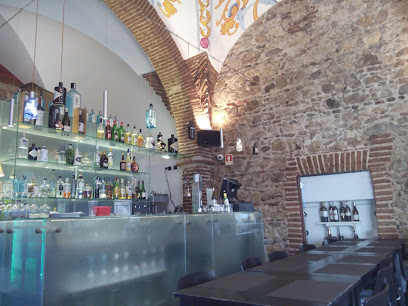
Avista Bar
Experience the charm of Évora at Avista Bar, where stunning views and delightful cocktails create the perfect retreat for tourists.
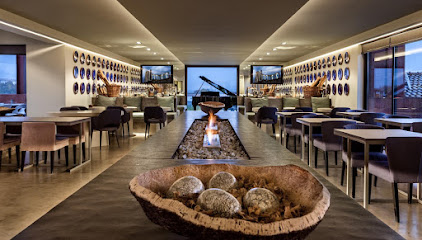
Oficina - Bar
Experience the vibrant nightlife of Évora at Oficina, a cozy bar offering creative cocktails and a welcoming atmosphere for all.
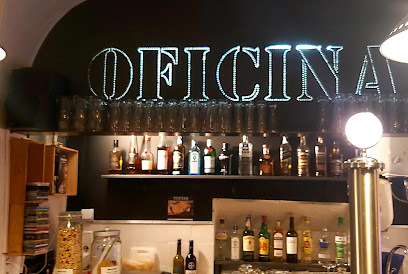
SkyBAR Évora
Discover the best of Évora at SkyBAR Évora, where delicious tapas meet stunning views and a vibrant atmosphere.
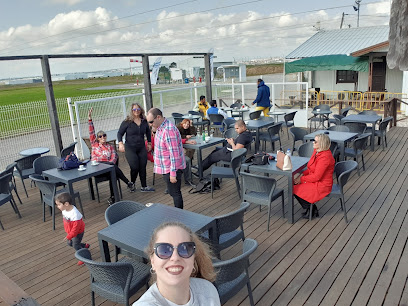
Aqui Há Gato
Experience the vibrant nightlife of Évora at Aqui Há Gato, a lively bar offering diverse drinks, great music, and a welcoming atmosphere.
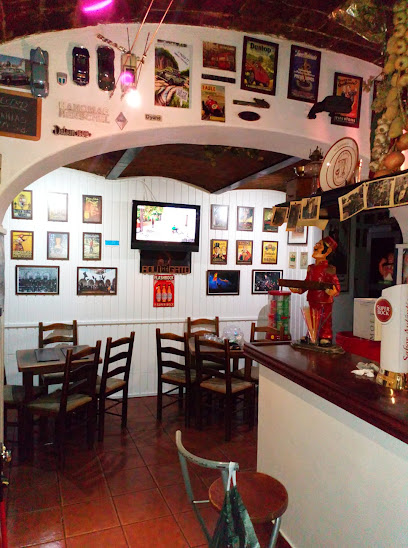
Bar Bardamoeda
Experience the vibrant atmosphere and exquisite flavors of Évora at Bar Bardamoeda, where culinary delights meet lively nightlife.
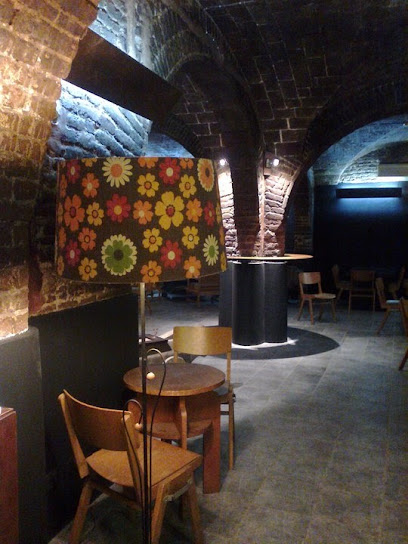
Magnífica Cerveja Artesanal do Alentejo / Beer house & Tapas
Experience the finest craft beers and delicious tapas in Évora at Magnífica Cerveja Artesanal do Alentejo, a true gem in the heart of Alentejo's brewing tradition.
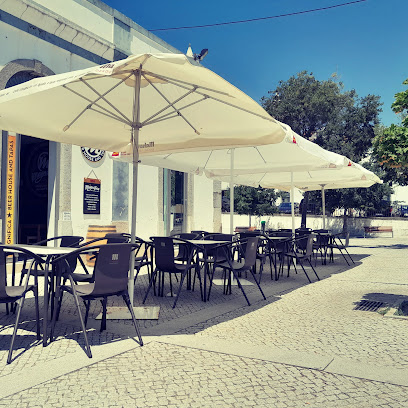
Travel experiences inspired by this city
Explore more travel diariesLocal Phrases
-
- HelloOlá
[oh-LAH] - GoodbyeAdeus
[ah-DEH-oos] - YesSim
[seem] - NoNão
[now] - Please/You're welcomePor favor/De nada
[por fah-VOHR/deh NAH-dah] - Thank youObrigado
[oh-bree-GAH-doo] - Excuse me/SorryCom licença/Desculpe
[kohm lee-SEN-sah/dehs-KOOL-peh] - How are you?Como está?
[KOH-moo ehs-TAH] - Fine. And you?Estou bem. E você?
[ehs-TOH-oo beng. eh VOO-seh] - Do you speak English?Fala inglês?
[FAH-lah een-GLEHZ] - I don't understandNão entendo
[now een-TEN-doo]
- HelloOlá
-
- I'd like to see the menu, pleaseGostava de ver o menu, por favor
[goh-STAH-vah deh vehr oo MEH-noo, por fah-VOHR] - I don't eat meatNão como carne
[now KOH-moo KAHR-neh] - Cheers!Saúde!
[sah-OOD-eh] - I would like to pay, pleaseGostaria de pagar, por favor
[goh-stah-REE-ah deh pah-GAHR, por fah-VOHR]
- I'd like to see the menu, pleaseGostava de ver o menu, por favor
-
- Help!Socorro!
[so-KOH-roo] - Go away!Vai embora!
[VAH-ee ehm-BOH-rah] - Call the Police!Chame a polícia!
[SHAH-meh ah poh-LEE-see-ah] - Call a doctor!Chame um médico!
[SHAH-meh oong MEH-dee-koo] - I'm lostEstou perdido
[ehs-TOH pehr-DEE-doo] - I'm illEstou doente
[ehs-TOH doo-EN-teh]
- Help!Socorro!
-
- I'd like to buy...Gostaria de comprar...
[goh-stah-REE-ah deh kohm-PRAR] - I'm just lookingEstou só a ver
[ehs-TOH soo ah vehr] - How much is it?Quanto custa?
[KWAHN-too KOOSH-tah] - That's too expensiveIsso é muito caro
[EE-soo eh MOO-ee-too KAH-roo] - Can you lower the price?Pode baixar o preço?
[POH-deh BAI-shar oo PREH-soo]
- I'd like to buy...Gostaria de comprar...
-
- What time is it?Que horas são?
[kay OH-ras sahn] - It's one o'clockÉ uma hora
[eh OO-mah OH-rah] - Half past (10)Meia dezena
[MEH-yah deh-ZEH-nah] - MorningManhã
[mah-NYAH] - AfternoonTarde
[TAHR-deh] - EveningNoite
[NOY-teh] - YesterdayOntem
[ohn-TEM] - TodayHoje
[OH-zheh] - TomorrowAmanhã
[ah-mah-NYAH] - 1Um
[oom] - 2Dois
[doh-ees] - 3Três
[trehs] - 4Quatro
[KWAH-troo] - 5Cinco
[SEEN-koo] - 6Seis
[saysh] - 7Sete
[SEH-teh] - 8Oito
[OY-too] - 9Nove
[NOH-veh] - 10Dez
[dehz]
- What time is it?Que horas são?
-
- Where's a/the...?Onde fica o/a...?
[OHN-dee FEE-kah oo/ah] - What's the address?Qual é a morada?
[kahl EH ah moh-RAH-dah] - Can you show me (on the map)?Pode mostrar-me (no mapa)?
[POH-deh moh-SHTR-meh (noh MAH-pah)] - When's the next (bus)?Quando é o próximo (autocarro)?
[KWAHN-doo eh oo PROH-ksih-moh (ow-TOH-kah-roo)] - A ticket (to ....)Um bilhete (para ....)
[oom bee-LEH-teh (PAH-rah)]
- Where's a/the...?Onde fica o/a...?
History of Évora
-
Évora, originally known as Liberalitas Julia, was founded by the Romans in the 1st century BC. The city's well-preserved Roman Temple, often referred to as the Temple of Diana, stands as a testament to this era. This ancient city was an important center in the Roman province of Lusitania, demonstrating significant urban development typical of Roman influence.
-
In 715 AD, Évora fell under Moorish control, which lasted until the 12th century. The Moors left a lasting impact on the city's architecture, urban structure, and cultural landscape. The ancient city walls and the Giraldo Square reflect Moorish architectural styles, blending seamlessly with later Christian elements.
-
Évora was reconquered by the Portuguese King Afonso I in 1166. This period marked the beginning of the city's golden age, particularly during the reign of King Manuel I in the 16th century. Notable structures such as the Évora Cathedral and the Royal Palace of Évora were built during this time, showcasing the Manueline architectural style.
-
Founded in 1559 by Cardinal Henry and under the guidance of Jesuits, the University of Évora became a prominent center of learning. It attracted scholars from across Europe and played a crucial role in the intellectual and cultural development of Portugal. The university continues to be a significant educational institution to this day.
-
Évora was one of the key locations for the Portuguese Inquisition, starting in the mid-16th century. The Inquisition left a dark mark on the city's history, with many trials and executions taking place. The Inquisition Palace, now part of the university, stands as a reminder of this somber period.
-
The city experienced a decline in the 18th and 19th centuries due to political instability and economic hardships. Despite this, Évora retained its historical charm. Many of its ancient structures survived, including the medieval aqueduct, known as the Água de Prata Aqueduct, which continues to be a significant landmark.
-
In contemporary times, Évora has been recognized for its historical significance and preserved heritage. The city was designated a UNESCO World Heritage site in 1986. Today, Évora is a vibrant blend of the old and the new, with its ancient streets, cultural festivals, and a thriving academic community, making it a unique destination for travelers.
Évora Essentials
-
Évora is located in the Alentejo region of Portugal. The nearest international airport is Lisbon Portela Airport, approximately 130 kilometers away. From Lisbon, you can take a direct train from Lisbon's Oriente Station to Évora, which takes about 1.5 hours. Alternatively, you can take a bus from Sete Rios Bus Station in Lisbon, which also takes around 1.5 hours. For those driving, the A6 motorway connects Lisbon to Évora, making it an easy road trip.
-
Évora is a compact city, and many of its attractions are within walking distance. For longer trips, local taxis are readily available and relatively affordable. Public buses operate within the city and connect to nearby towns. Renting a bike is also a popular option for exploring the city. Car rentals are available for those looking to explore the surrounding Alentejo region at their own pace.
-
The official currency in Portugal is the Euro (EUR). Credit cards are widely accepted in Évora, including in most hotels, restaurants, and shops. However, it is advisable to carry some cash, especially when visiting smaller establishments or local markets. ATMs are widely available throughout the city, and foreign exchange services can be found in major tourist areas.
-
Évora is generally a very safe city for tourists. However, like any travel destination, it is advisable to take standard precautions. Avoid leaving your belongings unattended and be cautious in crowded areas to prevent pickpocketing. There are no specific high-crime areas targeting tourists, but it is always best to stay vigilant and aware of your surroundings, especially at night.
-
In case of emergency, dial 112 for immediate assistance from police, fire, or medical services. The local police station (Polícia de Segurança Pública) and medical facilities, including the Hospital do Espírito Santo de Évora, are available for assistance. It is recommended to have travel insurance that covers medical emergencies. Pharmacies are available throughout the city for minor health issues.
-
Fashion: Do dress comfortably, but remember to dress modestly when visiting religious sites. Avoid overly casual attire such as swimwear away from the pool or beach. Religion: Do respect local customs and traditions, especially in religious sites. Ensure your shoulders and knees are covered when entering churches. Public Transport: Do be respectful and give up your seat to elderly passengers. Don't eat or drink on public transport. Greetings: Do greet people with a friendly 'Bom dia' (Good morning) or 'Boa tarde' (Good afternoon). A handshake is customary. Eating & Drinking: Do try local delicacies like 'açorda' and 'migas'. Don't rush meals; dining is considered a social activity in Portugal.
-
To experience Évora like a local, visit the Mercado Municipal de Évora where you can buy fresh produce and traditional Portuguese goods. Engage with locals, as they are often friendly and willing to share stories about the city's history and culture. Don't miss the Chapel of Bones (Capela dos Ossos), a unique and slightly macabre site. For a unique experience, take a walk around the ancient Roman Temple and the University of Évora, one of the oldest universities in Portugal.
Trending Landmark in Évora
-
Templo Romano Évora
-
Chapel of Bones (Évora)
-
Cathedral of Évora
-
Igreja e Mosteiro de São Francisco
-
Giraldo Square Fountain
-
Aqueduct
-
Taberna Típica Quarta-feira
-
Convento do Espinheiro, Historic Hotel & Spa - Évora
-
Alto de São Bento
-
Mercado Municipal 1º de Maio - Évora
-
Ruínas Fingidas
-
Monument to the Dead of the Great War
-
Royal Palace of Évora
-
Porta Velha da Lagoa
-
Graça Church
Nearby Cities to Évora
-
Things To Do in Setúbal
-
Things To Do in Badajoz
-
Things To Do in Viseu
-
Things To Do in Lisbon
-
Things To Do in Tomar
-
Things To Do in Sintra
-
Things To Do in Cascais
-
Things To Do in Caldas da Rainha
-
Things To Do in Huelva
-
Things To Do in Faro
-
Things To Do in Coimbra
-
Things To Do in Seville
-
Things To Do in Aveiro
-
Things To Do in Cádiz
-
Things To Do in Lamego

























